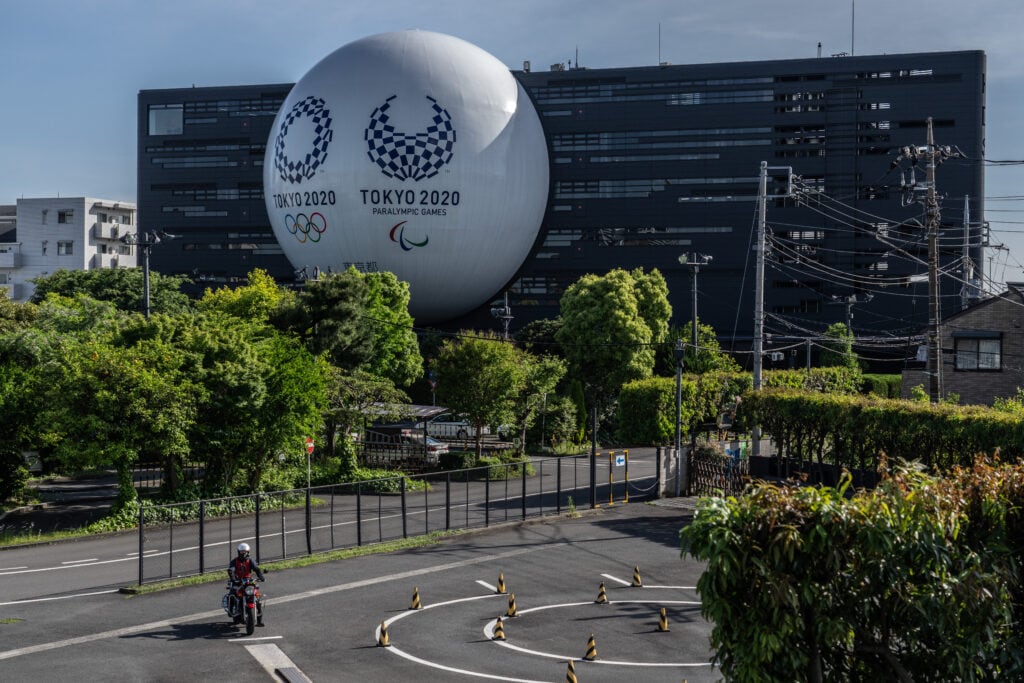Namibian sprinters banned from Olympics for ‘elevated’ testosterone levels
The 18-year-old Namibian sprinters have posted four of the top five fastest 400-meter times in the world this year
The Olympic dreams of Namibian star sprinters Christine Mboma and Beatrice Masilingi have been placed on hold due to their “natural high testosterone” levels.
The two 18-year-old sprinters have been ruled ineligible to compete in the Tokyo Games this summer after medical tests found their blood testosterone levels exceeded the limit designated by World Athletics’ policy on athletes with differences of sex development (DSD).
“According to the rules of World Athletics, this means that they are not eligible to participate in events from 400-meter to 1600-meter,” read a statement from the Namibia National Olympic Committee.
Introduced in 2018, World Athletics’ DSD regulations ban athletes with “elevated” testosterone from specifically participating in women’s races between 400-meters and 1600-meters.
Because of this rule, none of the three 800-meter medalists from 2016’s Rio Olympics — Caster Semenya, Francine Niyonsaba and Margaret Wambui — will be allowed to defend their medals in Tokyo. Sprinter Aminatou Seyni is also being barred from competition this summer due to hormone regulations.
Per World Athletics, athletes with elevated testosterone levels must lower them using medication and remain under the acceptable limit for six months in order to compete. They may also change which race they run, such as moving from 400-meters to 100 or 200-meters.
The news comes during a year when Mboma and Masilingi have both pushed themselves to new heights on the track, establishing themselves as some of the world’s best sprinters.
Between them, the Namibian runners have posted four of the top five 400-meter times in the world this year, according to World Athletics. In June, Mboma set the 400-meter world record for the under-20 division, earning her a #1 world ranking at the event. Masilingi is ranked behind her at #3 in the world.
A huge semi-sphere displaying the Tokyo Olympics and Paralympics logos is displayed from the side of a driving school building on May 6, 2021 in Tokyo, Japan. (Photo by Carl Court/Getty Images)
Neither will be competing in the 400-meter this summer, but both remain eligible for the 100-meter and 200-meter events, according to the Namibia National Olympic Committee’s statement.
“It is important to understand that both our athletes were not aware of this condition neither did any family member, their coach or the NNOC-CGA [Namibia Olympic Committee] were aware of it,” the Committee said. “We are positive on their future as elite athletes. This should not be viewed negatively but rather as a new challenge and opportunity.”
The decision was met with backlash from Twitter users who deemed the Olympics’ policing of hormone levels to be “transphobic.”
“The inherent sexism of “if you’re too good, you can’t be a woman.” The transphobia of hormone testing in the first place. The racism of Black women being the primary victims of this rule,” said one user.
“High level athletics is falling prey to a really horrendous mix of transphobia and misogynoir. If the best can’t compete, the Olympics don’t deserve to bear that name,” another user said.
The 400-meter race at this year’s Olympics will not feature any of the event’s top seven fastest sprinters since 2019. 2019 World champ Salwa Eid Naser has been banned due to missed drug tests. Shaunae Miller-Uibo will instead run the 200-meter, Shericka Jackson will run the 100-meter and the 200-meter, and Athing Mu will run the 800-meter.
Have you subscribed to theGrio’s podcast “Dear Culture”? Download our newest episodes now!
TheGrio is now on Apple TV, Amazon Fire, and Roku. Download theGrio today!
The post Namibian sprinters banned from Olympics for ‘elevated’ testosterone levels appeared first on TheGrio.

